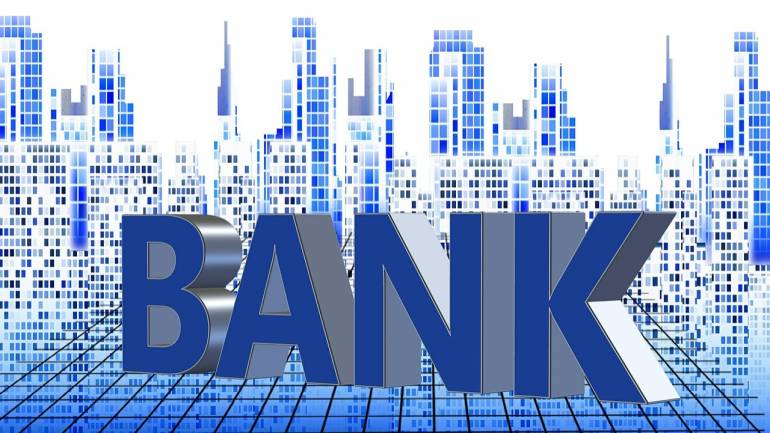Bankers and analysts expect significant spike in non-performing assets going ahead. The pain may not be visible immediately since the RBI has extended regulatory relaxations.
Ideally, the sharp deceleration in the April manufacturing activity shouldn’t be a surprise to anyone. Economic activities have come to a total standstill since late March when the nationwide lockdown was announced by Prime Minister Narendra Modi. Even then, the fall in Nikkei manufacturing Purchasing Managers’ Index (PMI) to 27.4 in April from 51.8 in March is a shocker. It the sharpest deterioration in business conditions since data analytics firm IHS Markit began recording this metric 15 years ago.
This development also does not augur well for Indian banks.
Bankers and analysts expect significant spike in NPAs going ahead. The pain may not be visible immediately since the Reserve Bank of India (RBI) has extended regulatory relaxations.
But, that cushion won't be around for long.
The moratorium period will end soon and companies and individual borrowers will have to resume repayments from June. With no business happening, workforce availability remaining an issue and rampant pay cuts, it is doubtful how many borrowers will have repayment capacity, bankers said.
Also Read | RBI top brass takes stock of situation; bank CEOs seek extension of COVID-19 relaxations
According to a report by ICRA, about 328 companies have sought moratorium from banks. That tells us about their financial position.
"It is quite obvious that we are not going to see improvement anytime soon. The worst part is that there is no assessment on the likely impact," said a senior banker.
Track this blog for latest updates on the coronavirus outbreak
After a prolonged bad loan clean-up exercise, Indian banks' total gross NPAs stood at Rs 7.97 lakh crore as of December-end compared to Rs 8.02 lakh crore a year ago.
Uncertain times
Banks are already giving distress signals to investors. On April 28, the mood at Axis Bank's media conference call after the bank's Q4 results was that of high caution. There was no clear guidance from top management on what lies ahead.
"If you look out of the window, all you can see is that the economic activities have come to a standstill," said chief executive officer, Amitabh Chaudhury.
What caught analysts by surprise was the unexpected Rs 3,000 crore (out of the Rs 7,730 crore total provisions) provisions set aside to cover the likely impact of COVID-19. The signal was clear.
Not just Axis, most other banks expect the likelihood of slippages this year due to the debilitating impact of COVID-19. Private banks like HDFC Bank and ICICI Bank have presented a relatively optimistic scenario while large state-run banks are largely silent on future outlook.
"It is almost certain that the industry will see a big spike in bad loans. A number of companies are feeling the heat. This stress is not reflecting so far because of the present RBI relaxations such as moratorium on loan payments. But, once this is lifted, the real picture will emerge," said Siddarth Purohit, analyst at SMC Global Securities.
According to RBI's credit growth data, there was a spike in bank lending in March, particularly in the last fortnight of March in some sectors like non-banking finance companies and industries. But, analysts said some of this growth could be due to earlier sanctions. Still, the overall growth largely remain subdued on a YoY basis.
RBI measures so far
The central bank has announced a slew of measures to help banks and borrowers tide over this crisis. In the first round of measures, RBI announced a 75 basis point rate cut, liquidity measures to the tune of Rs 3.74 lakh crore, including a targeted long term repo operation (TLTRO) worth Rs 1 lakh crore, deferment of interest on working capital facilities and three month moratorium for all term loans extended by lending institutions. In the second round, the it announced TLTRO 2.0 worth Rs 50,000 crore, specifically targeting small companies.
No buyers for stressed assets?
The last credit cycle for banks had seen sharp surge in bad loans. Indian banks are at the end of a prolonged NPAs clean-up cycle. The hidden stock of bad loans buried deep in the balance sheets, accumulated over the years of easy money era, prompted the RBI to initiate an Asset Quality Review (AQR) in 2015. By now, that process is almost over with banks having disclosed most of the problematic large corporate accounts. Many large cases of corporate loan defaults have been pushed to the Insolvency and Bankruptcy Code (IBC) court for quicker resolution.
But, with the economic activities reduced to nil, it is highly unlikely that there will be buyers for stressed assets, bankers said. In the last round, certain large deals such as Rs 35,000 crore Tata Steel-Bhushan helped bankers recoup some losses.
Among the loan categories, fresh loans given to companies including those given to small and medium enterprises (SMEs) face risk if the cash flows of companies remain under pressure, thus impacting their loan repayment ability, bankers said.
"There is only so much you can do when economy is not doing well. Lending and recovery depend on economic recovery on the ground," said Naresh Malhotra, a banking consultant.
Banks remain highly risk averse and the consensus among industry leaders is that most companies in consumer-oriented sectors at the moment are now operating with less than 70 percent of their capacity. The banking sector's health depends on how soon the economy recovers. All eyes are now on the government's upcoming fiscal stimulus package.
Follow our full coverage of the coronavirus outbreak hereFirst Anniversary Offer: Subscribe to Moneycontrol PRO’s annual plan for ₹1/- per day for the first year and claim exclusive benefits worth ₹20,000. Coupon code: PRO365














